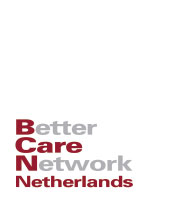overgenomen uit CRIN News
EGYPT: US couples face trial over baby buying
Two US couples have been charged in Egypt with buying babies for illegal adoption in the first known case in this country involving foreigners, highlighting a practice which experts say can easily go undetected.
A third US couple is accused of obtaining a forged birth certificate for a child and trying to use it to obtain a US visa, according to legal documents and security sources.
Egyptian authorities have jailed two of the couples pending trial, including two US citizens and their Egyptian spouses, and one couple is believed to be in the United States with the baby they obtained in Egypt, security sources said.
The trial will begin on 14 March.
Rights activists confirm trafficking in infants and young children takes place in the most populous Arab country, and infants in orphanages and babies of street girls are at highest risk of being trafficked, often to infertile couples.
Out of wedlock children targeted
”I don’t think it is a very common thing. I can’t say it is very rare, but there are obviously cases that are taking place,” said Nadra Zaki, a child protection specialist at UNICEF. ”It is usually related to children born out of wedlock.”
The current case involves four infants. It came to light after an Egyptian and her American husband approached the US embassy in Cairo to arrange to take two of the babies out of Egypt, according to the indictment.
It said the couple agreed with an orphanage worker ”to buy two newborn infants, a girl and a boy, in exchange for 26,000 pounds”, or $4,673, and received forged papers for the children.
The family’s lawyer said the couple wanted to adopt the children and did not knowingly break the law.
Another couple was accused of forgery and paying 10,000 pounds for a baby girl. The third couple was accused of obtaining a forged birth certificate for a baby boy to take him to the United States, the indictment said.
Formal adoption is not allowed in Egypt and Egyptians rarely gain legal guardianship of children not born to their families because of social, religious and legal strictures.
The US embassy in Cairo said it was aware of the case and was cooperating with Egyptian authorities.
Islamic law restricts adoption, barring families from giving their name to children they take into their homes. Egyptian law allows fostering but it is generally not culturally acceptable for families to take in unrelated children.
A lawyer for one of the couples, Sameh Ahmed Saleh, said he believed the children in this case were products of extramarital relationships or were ”found on the pavement”.
Rights activists say such children are also at risk in Egypt of being trafficked for forced labour or for their organs, and complain Egypt lacks mechanisms to protect vulnerable children.
”You can get children from orphanages easily with a bribe,” said Nihal Fahmy, an Egyptian expert in human trafficking. ”It is very easy to forge papers in Egypt.”
In addition to the couples charged, four other people, including an orphanage official and a doctor, are also being held. A fifth is being sought.
Egypte: kinderhandel uit kinderhuizen ontdekt: echtparen uit VS in gevangenis
ingevoerd op 23-2-2009
Overig nieuws
26-01-2026 - Mbo-stages in kindertehuizen niet langer toegestaan
13-01-2026 - Podcast over zorgverlater Surja
08-01-2026 - Themanummer tijdschrift over familieversterking
05-01-2026 - White paper UNICEF over gezinsondersteuning
23-12-2025 - Publicatie UNICEF over ouderschapsondersteuning
23-12-2025 - Casestudie over transitie naar familiegerichte zorg
09-12-2025 - Oproep aan Prins Harry en Meghan: kinderen horen niet in een weeshuis, maar bij familie
08-12-2025 - Rapport over seksuele uitbuiting van straatkinderen
07-12-2025 - Impact van twintig jaar Lumos
01-12-2025 - Seksueel misbruik en uitbuiting onder zorgverlaters
26-11-2025 - Familie re-integratie van straatkinderen in Zimbabwe
14-11-2025 - Holistische gezinshereniging in Zuid-Afrika
13-11-2025 - Transitie van residentiële zorg naar gemeenschapsgerichte ondersteuning voor kinderen met een beperking
29-10-2025 - Podcast over de gevaren van voluntourism
 | NIEUWS |  |
Zoeken in nieuws
 |  |
 | Deel deze pagina |  |
 |  |
PrivacyverklaringBetter Care Network Netherlands vindt uw privacy belangrijk. Wij verwerken persoonsgegevens in overeenstemming met de geldende privacywetgeving. In onze privacyverklaring staat precies wat u van ons kunt verwachten en aan welke regels we ons houden. |
|
|
Copyright 2026 - Better Care Network Netherlands



